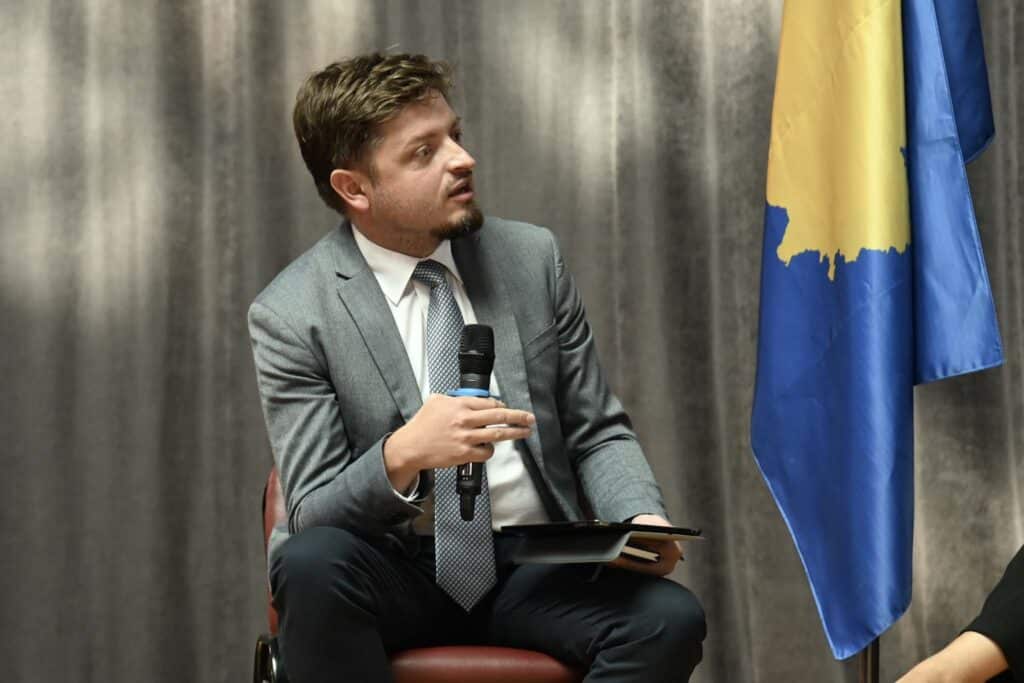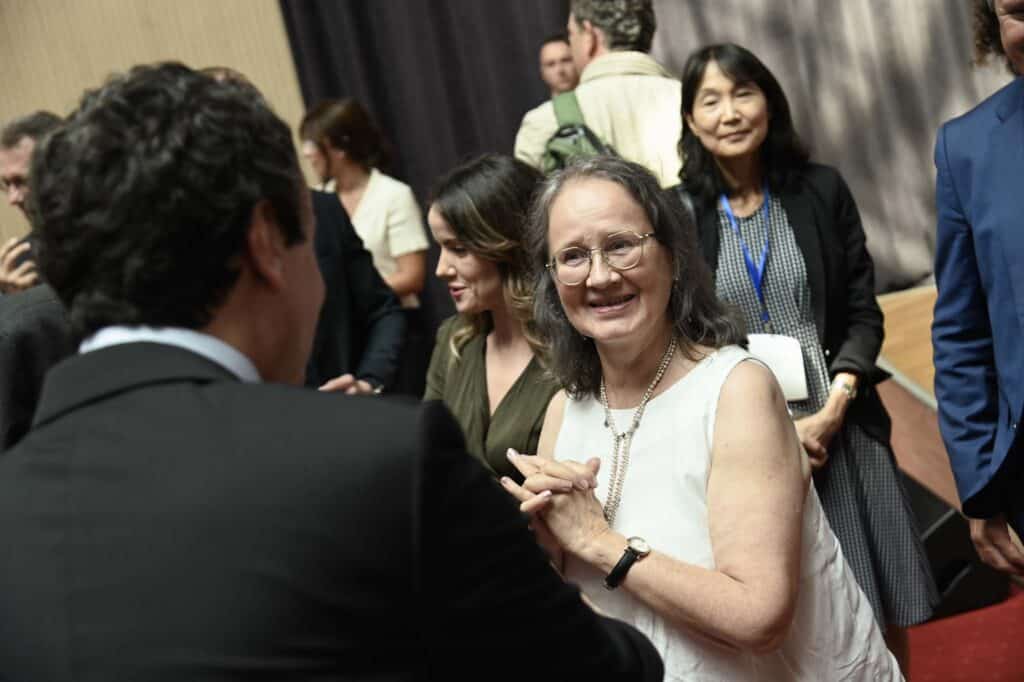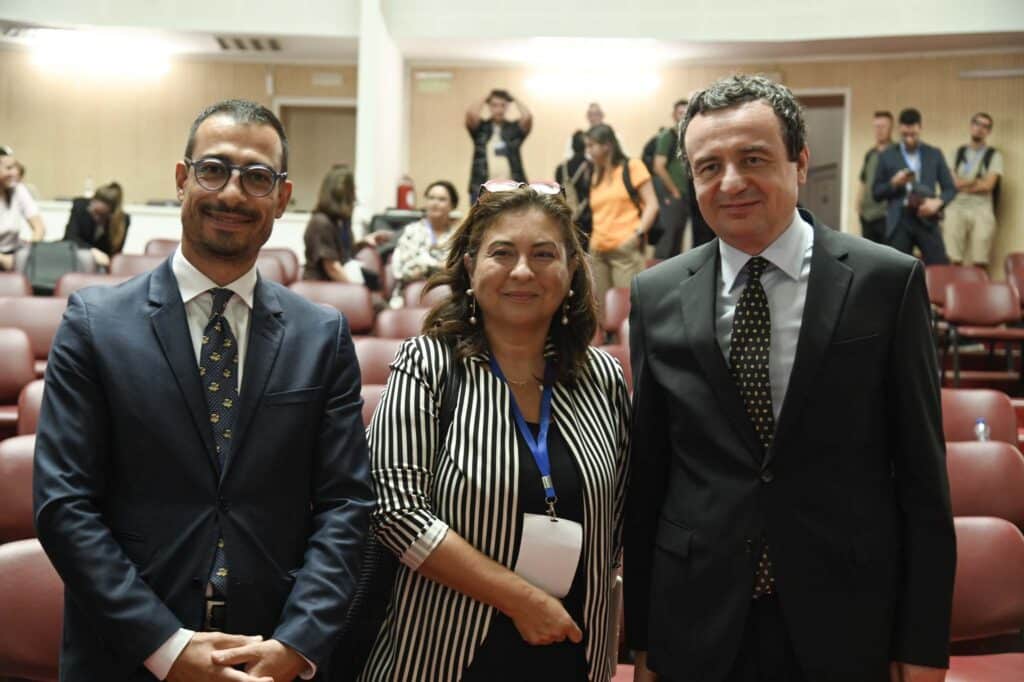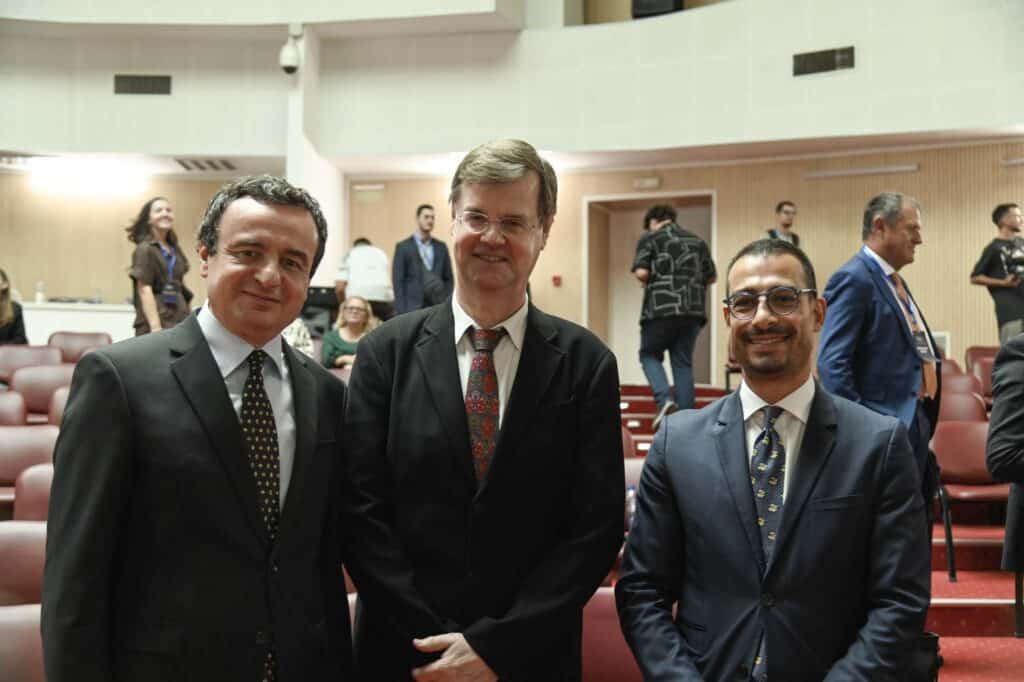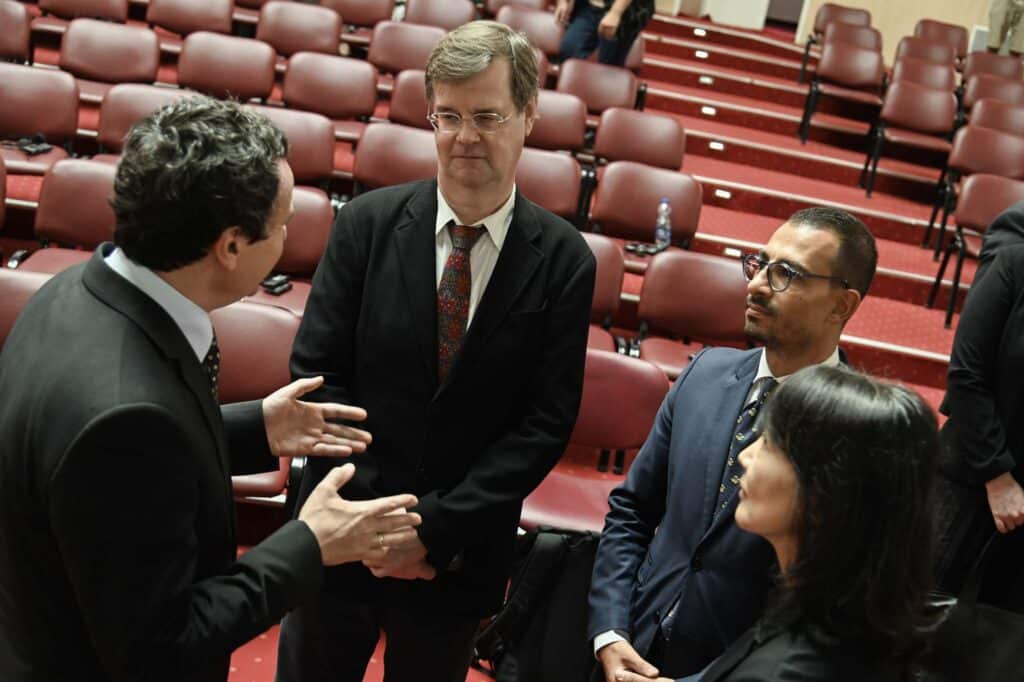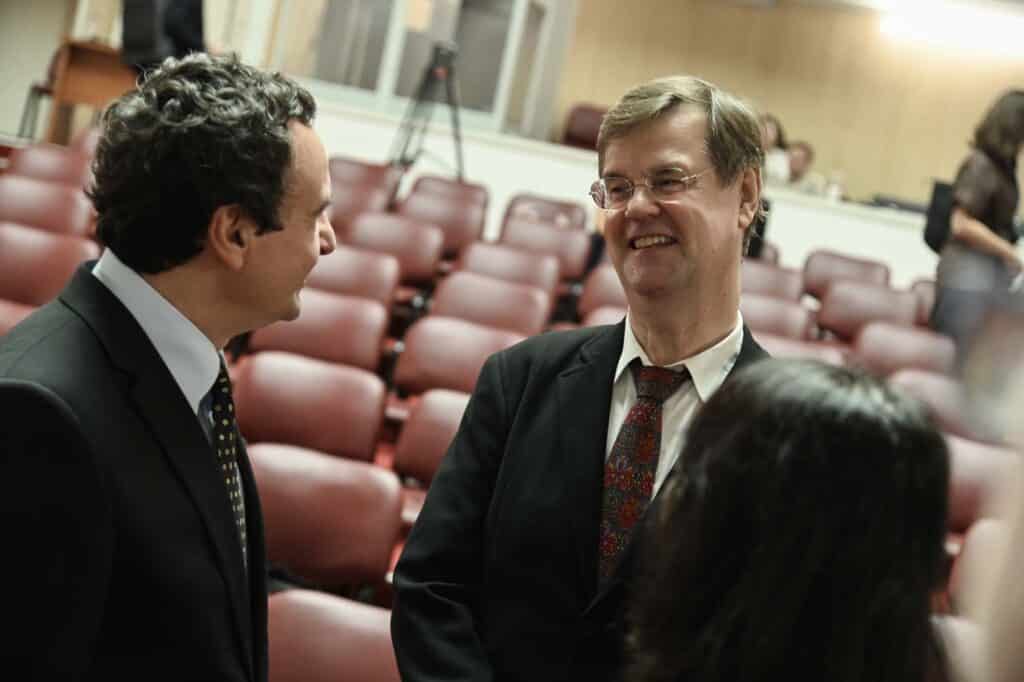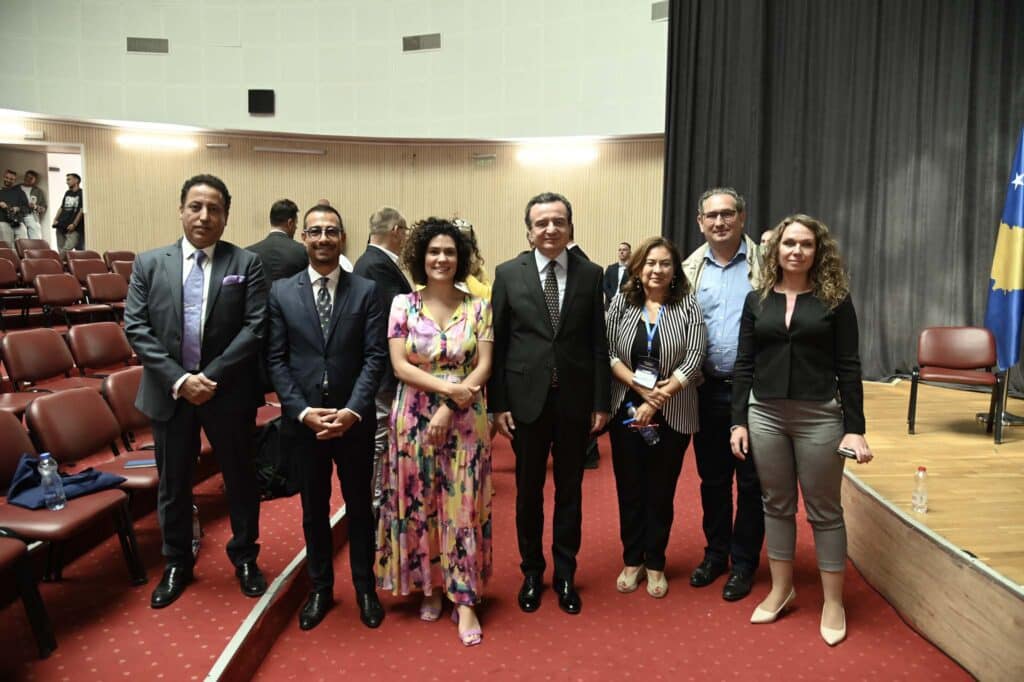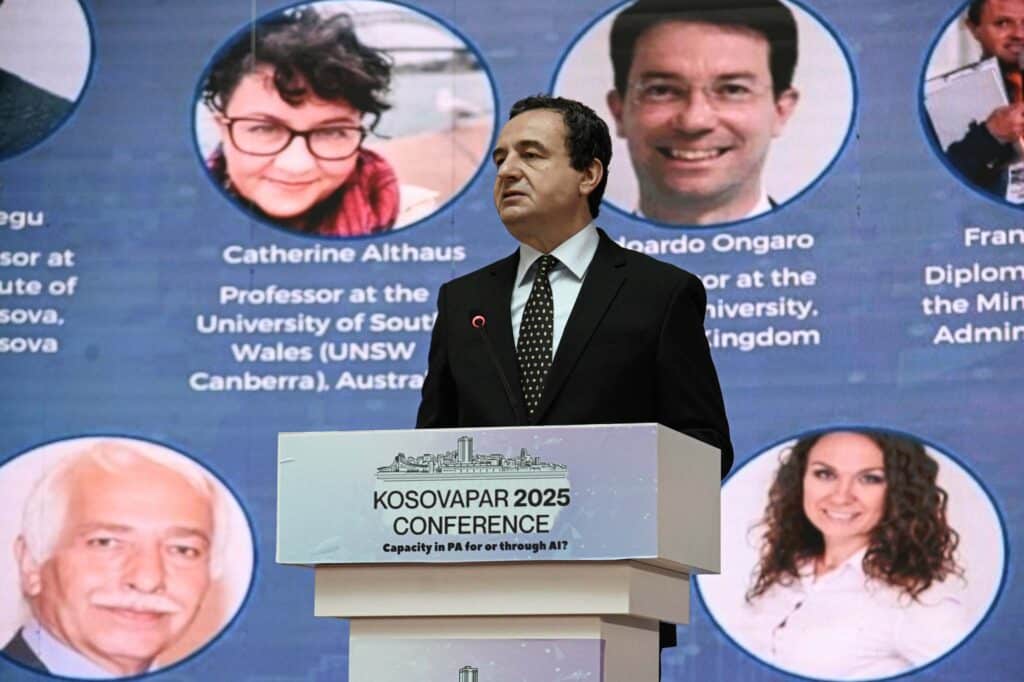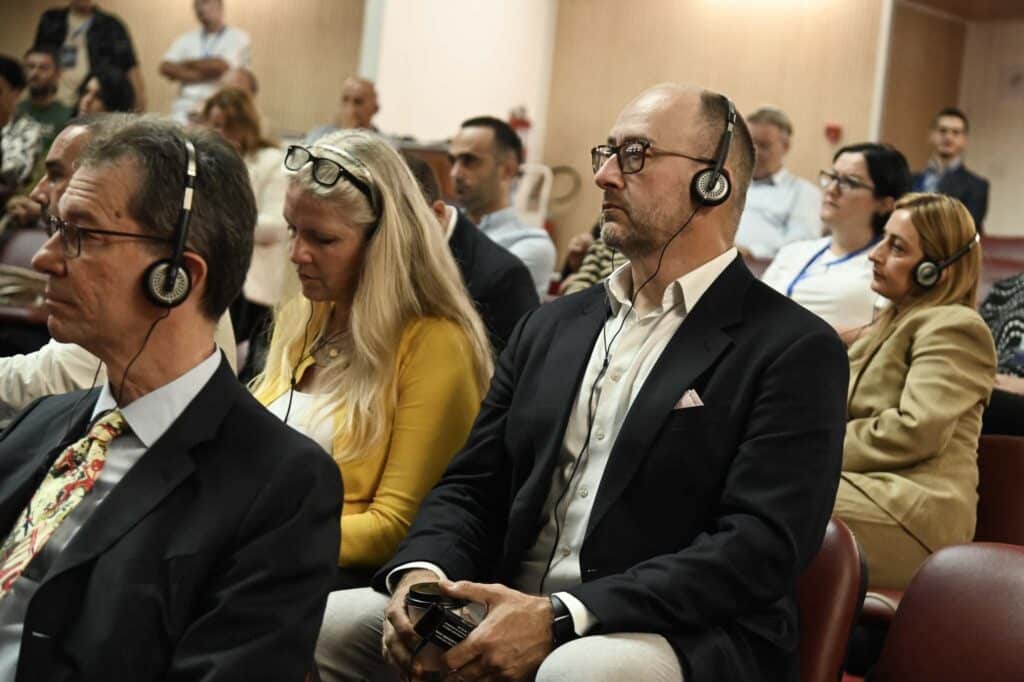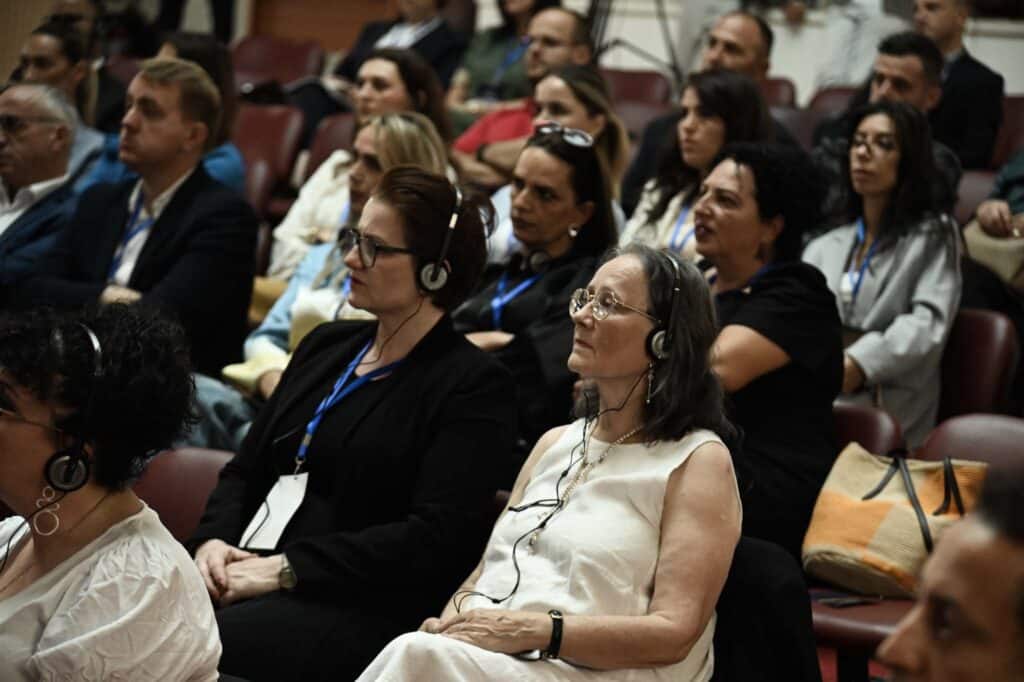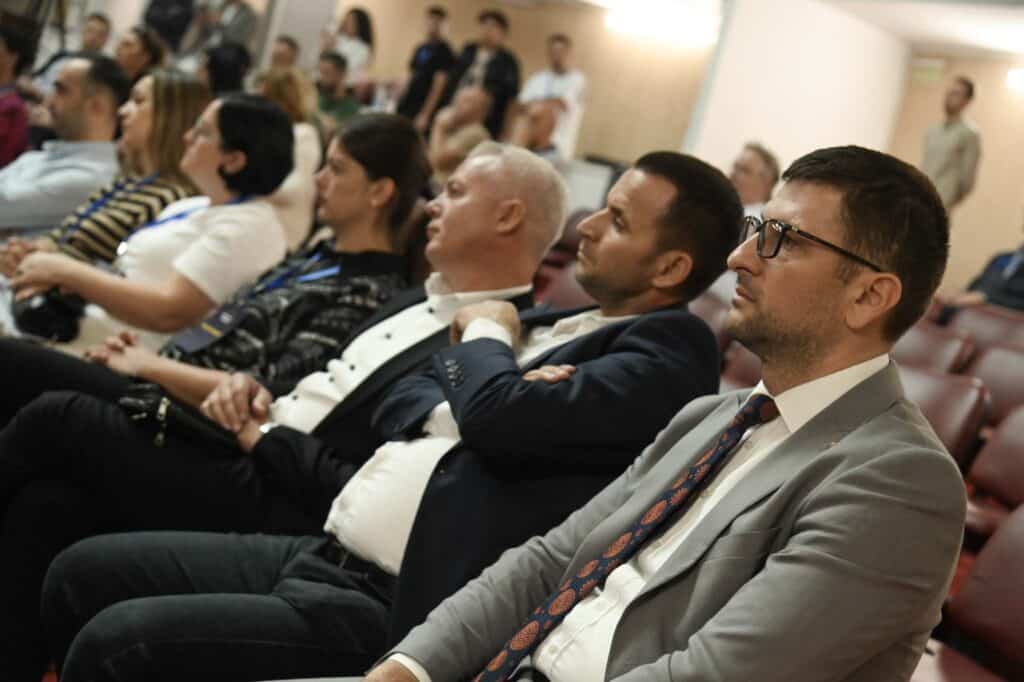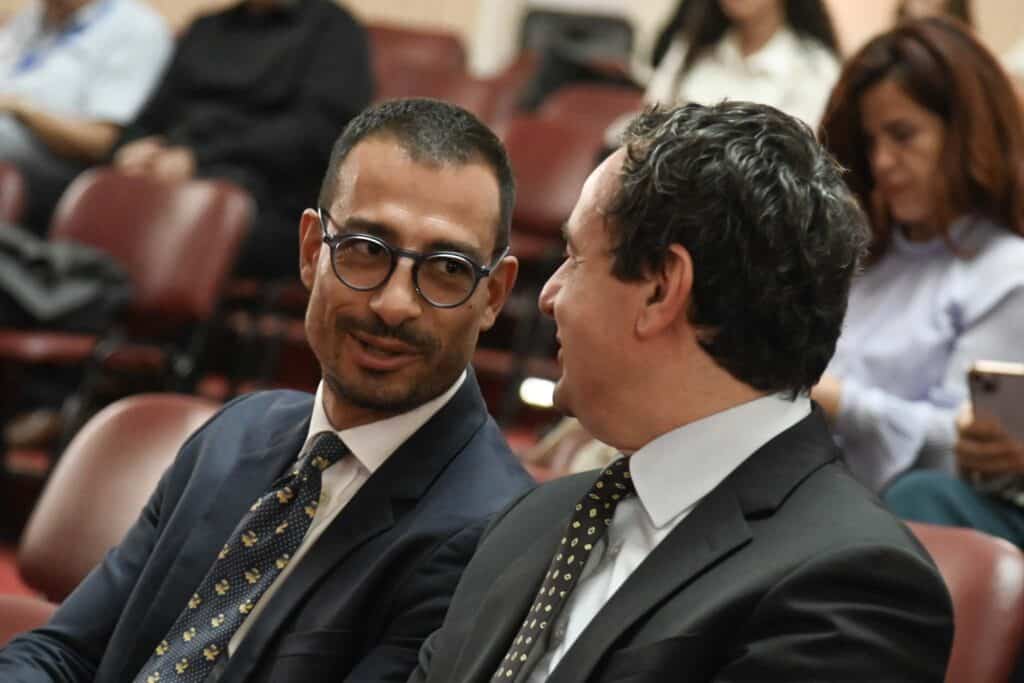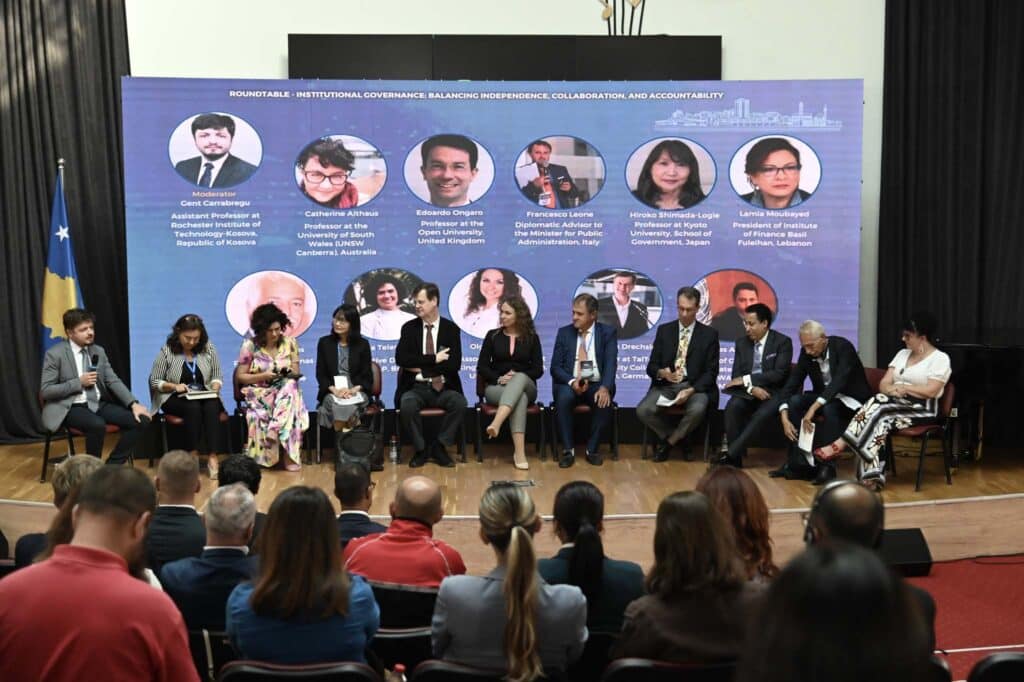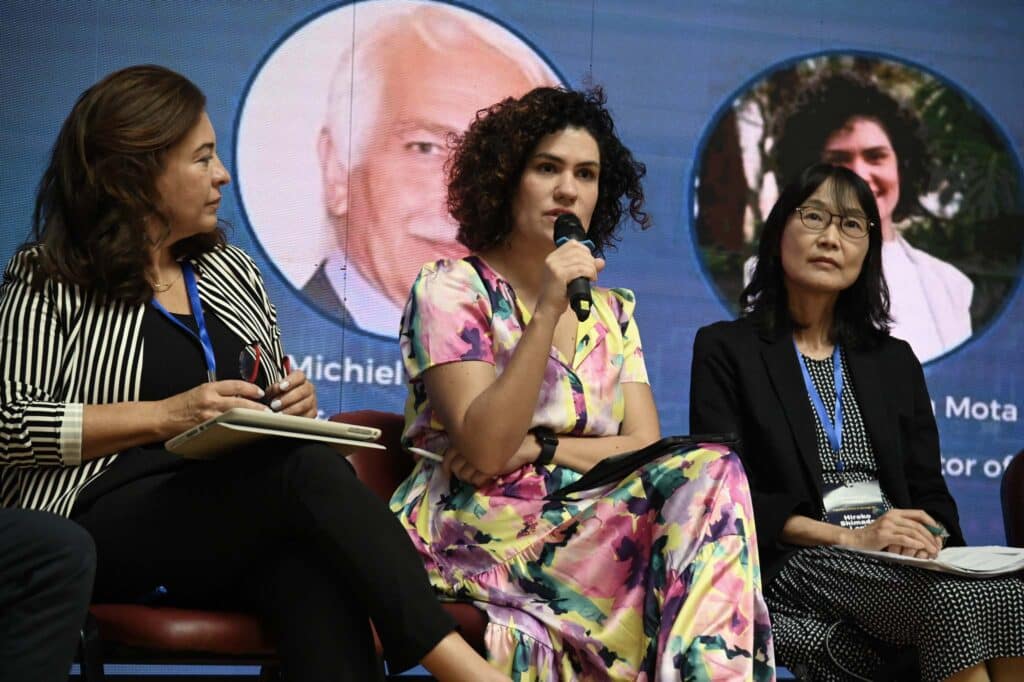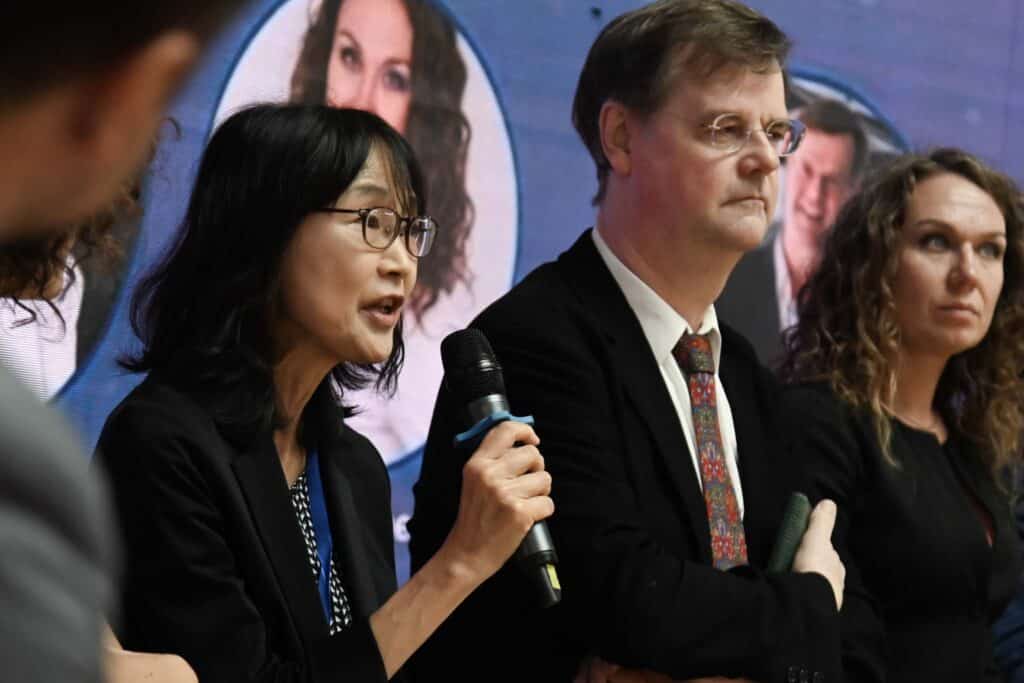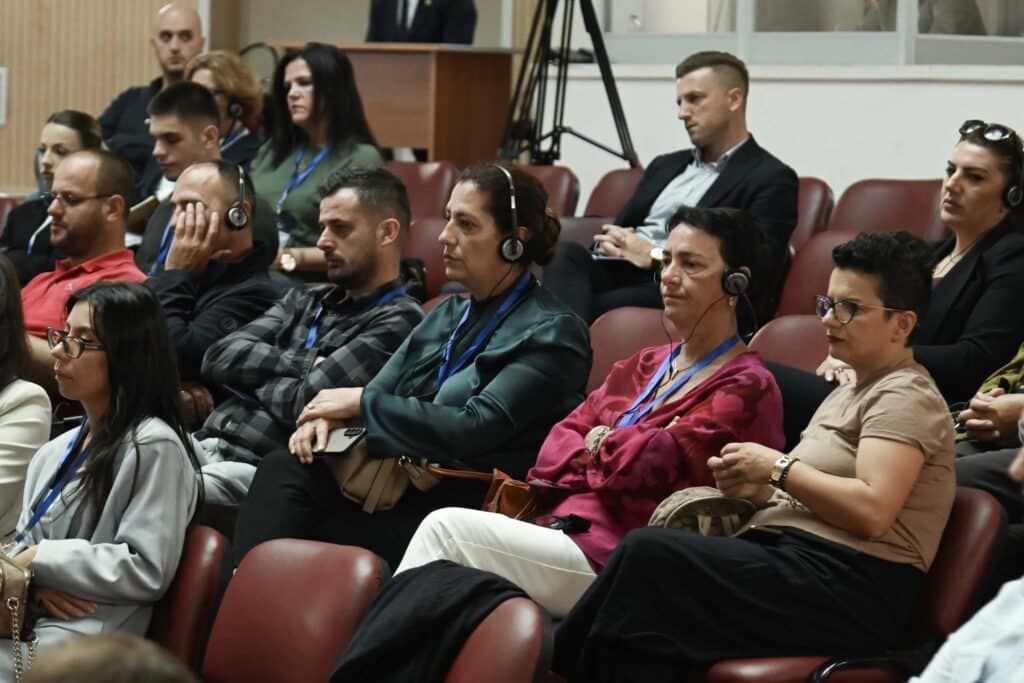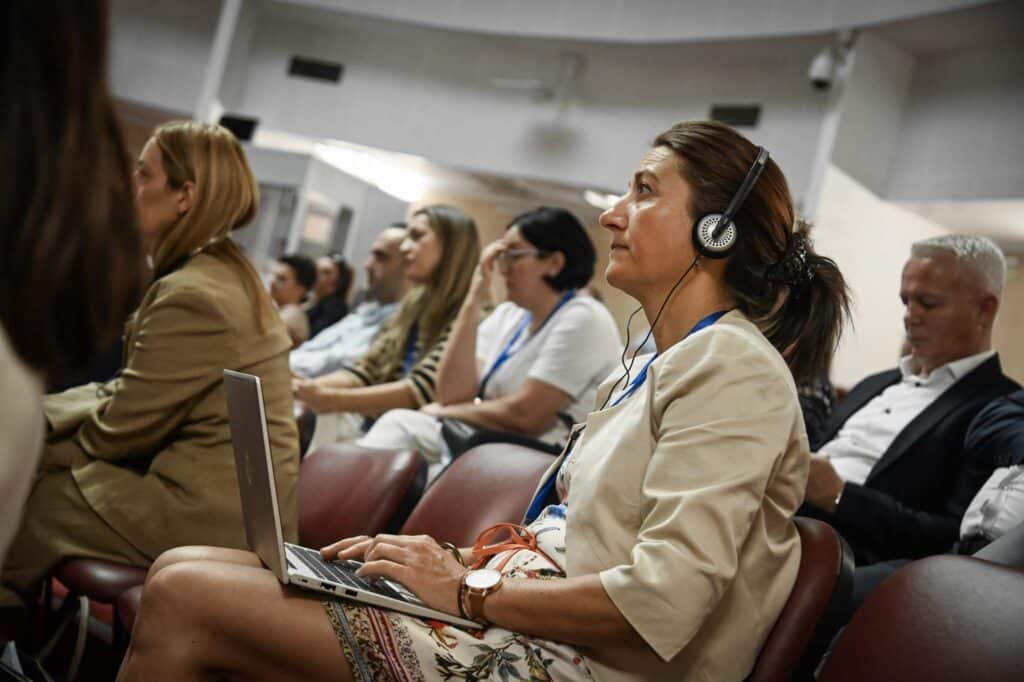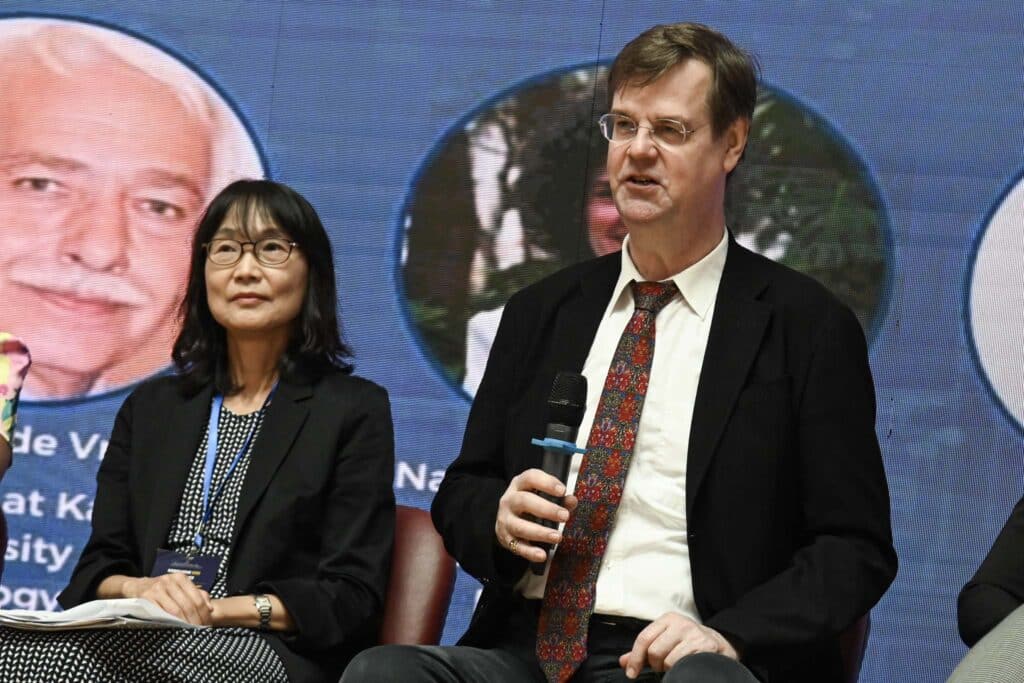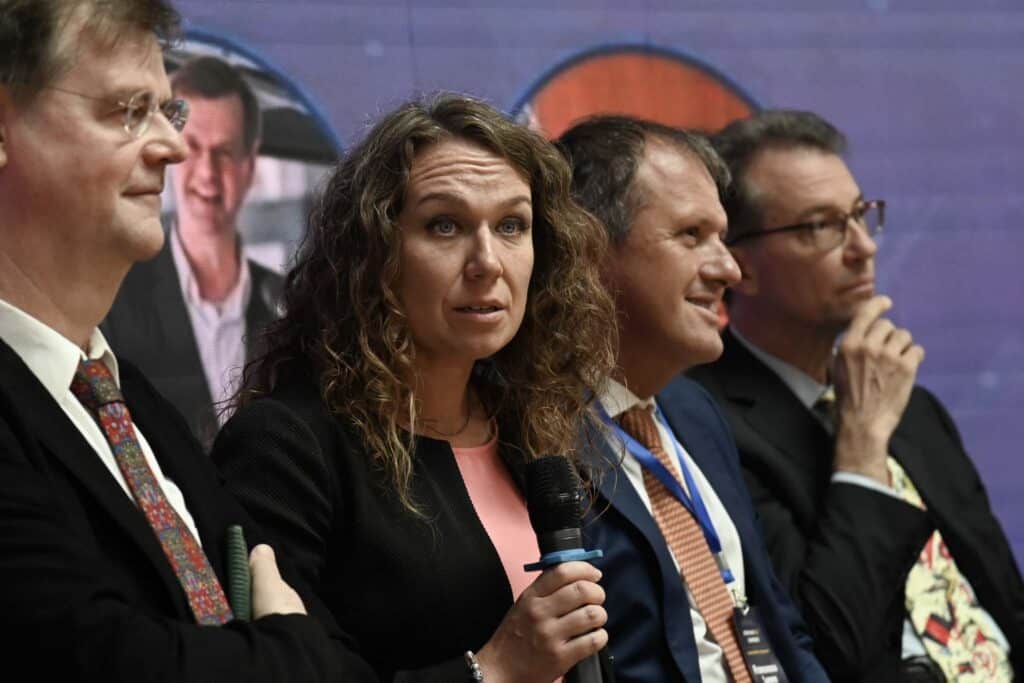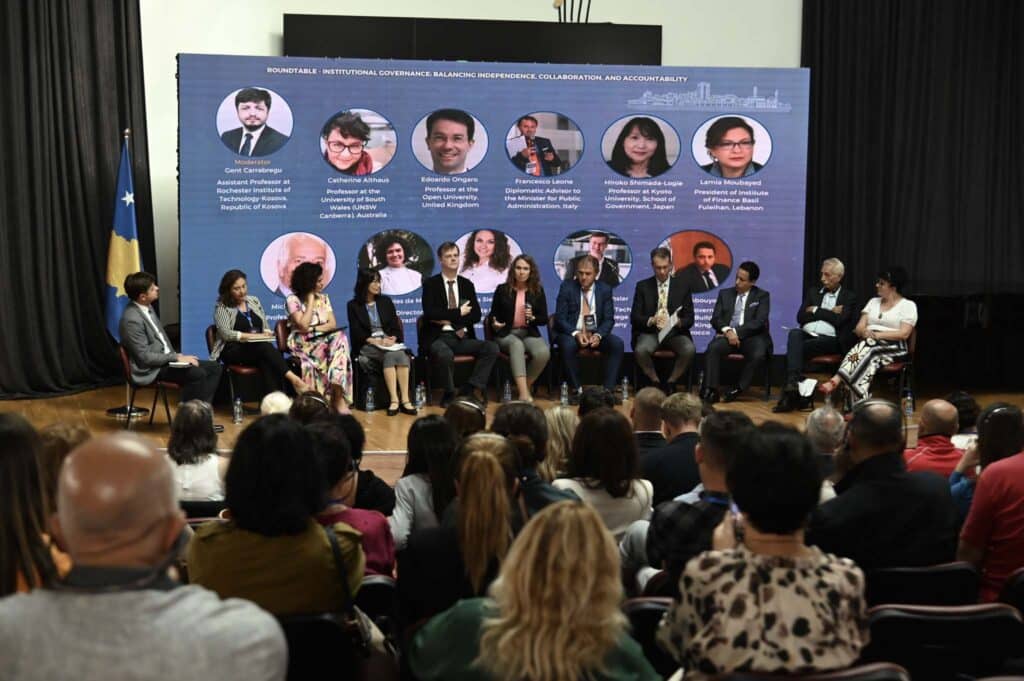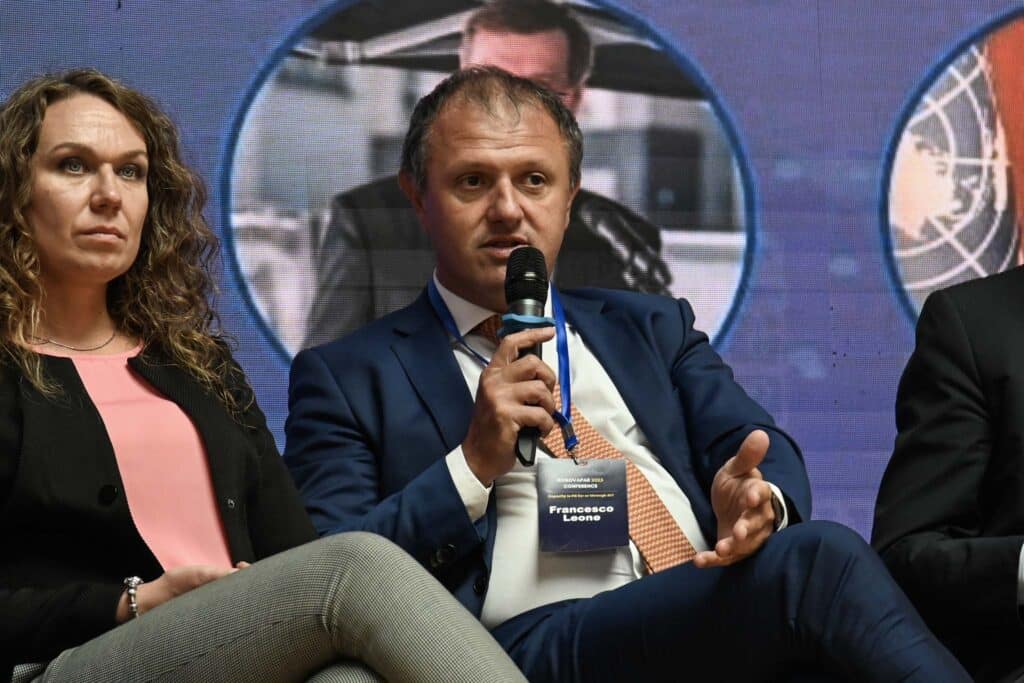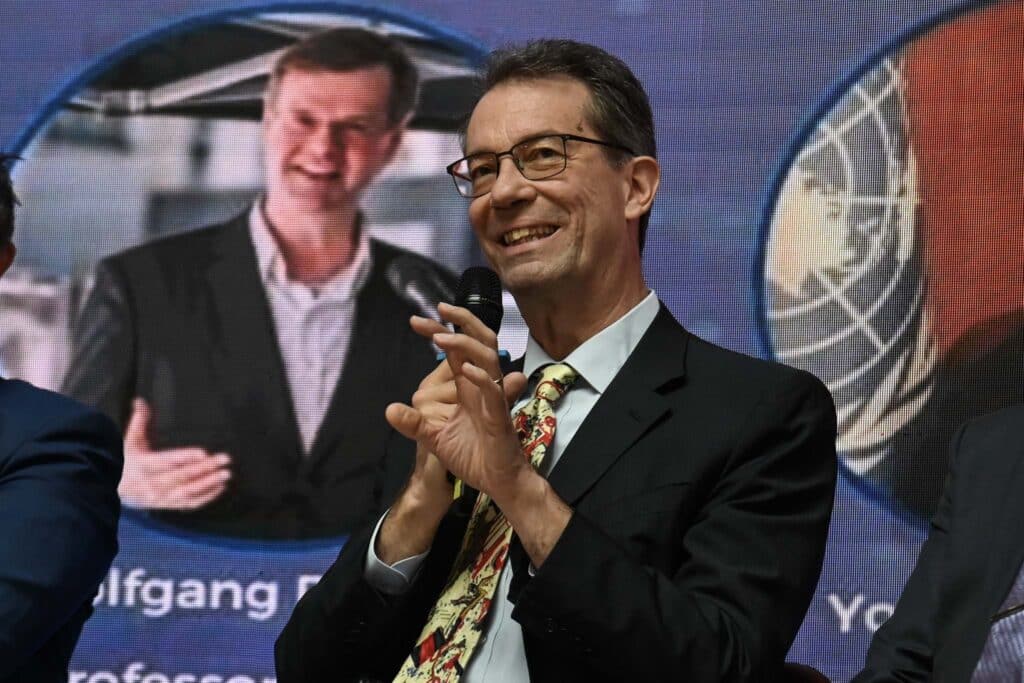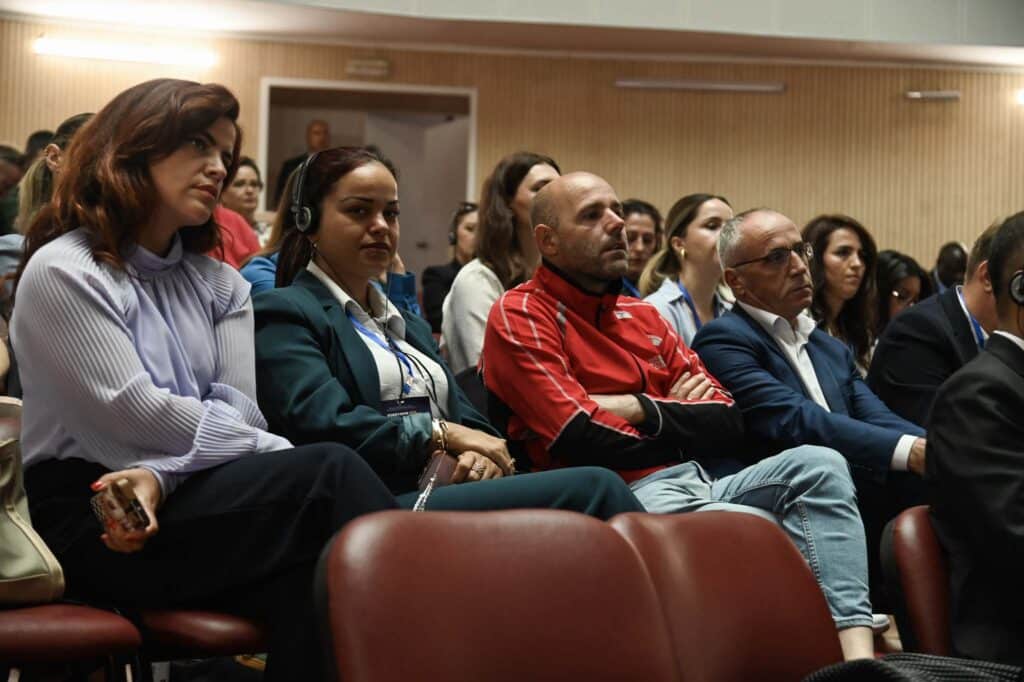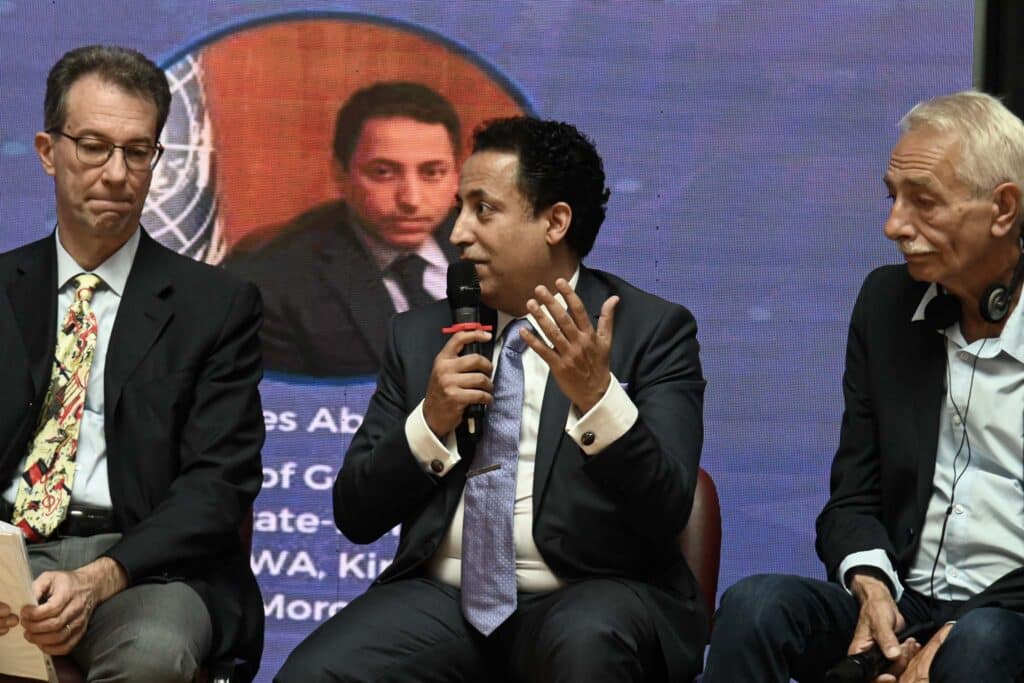Prishtina, 4 September 2025
The Acting Prime Minister of the Republic of Kosovo, Albin Kurti, took part in the second day of the International Conference on Public Administration – KosovaPAR2025, organized by the Ministry of Internal Affairs.
In his opening remarks, the Prime Minister stated that over the past 25 years Kosovo has undergone a state-building process—unique, without precedent elsewhere or at any other time. He cited the latest reports from organizations such as the World Bank, the International Monetary Fund, SIGMA, Gallup, Transparency International, the World Justice Project, and others, which confirm that Kosovo is a success story of state-building after a devastating war.
During the past four years, said the Prime Minister, his government has undertaken profound reforms across all sectors to ensure that positive changes are not only sustainable for the future but also irreversible, thereby preventing backsliding. Since the conference focuses on public administration and institutions, Prime Minister Kurti elaborated on three specific reports, most notably the SIGMA–OECD report, which in 2024 ranked Kosovo above the Western Balkans average across all six measured areas—significant progress compared to 2021, when Kosovo ranked below the regional average in five out of six areas.
Nevertheless, the Prime Minister also emphasized that during Kosovo’s state-building phase, two phenomena occurred that are closely interlinked. First, a process of over-agencification—the excessive proliferation of agencies—resulting in the creation of numerous executive and independent bodies, many of them unnecessary. Second, a large number of these agencies were granted independent status without justification, and in many cases executive agencies were placed under the legislature, which is problematic. As a result, in the name of independence, many agencies failed to report to the appropriate institutions, failed to account for their work and performance, and remained outside proper regulation—whether due to misinterpretation of independence, sometimes deliberate, sometimes out of ignorance, or due to the absence of adequate mechanisms to address such issues.
Therefore, Prime Minister Kurti underlined the importance of opening this vital debate on the independence of institutions and of finding the right balance between independence, cooperation, and accountability, so that institutions function more effectively and citizens’ lives improve to the greatest extent.
The KosovaPAR2025 conference began yesterday with 14 panels and two plenary sessions, bringing together representatives of state institutions, the diplomatic community, academia, public officials, civil society, and state representatives from the region and beyond.
Full Speech of Prime Minister Kurti:
Distinguished Mr. Bardhyl Dobra, Deputy Minister of Internal Affairs,
Representatives and leaders of domestic and international institutions,
Honored participants from many countries around the world and from Kosovo,
Ladies and gentlemen,
Dear guests,
Let me begin by warmly welcoming our participants from abroad to the Republic of Kosovo. Yesterday, due to scheduling reasons, I was unable to attend the opening of the KosovaPAR2025 Conference, which—as was promised back in 2023—has now been established as an annual conference bringing together eminent participants from Kosovo, the region, Europe, and indeed from across the globe.
I am very pleased to open the second day of discussions, particularly since the theme before us today is of special importance for Kosovo: institutional governance, and the search for balance between independence, cooperation, and accountability.
The concept of the separation of powers, from Montesquieu onward, has evolved considerably across different states and eras. It has adapted over time, and one could even say it has taken on new dimensions with the creation of agencies and independent bodies. Governance in the year 2025 is far more complex and different than it was in 1945, at the end of the Second World War, or even in 1990, after the fall of the Berlin Wall.
Kosovo, in this sense, is very much a sui generis case. The post-war institution-building that began in 1999 was led by a United Nations mission, together with the European Union and the Organization for Security and Co-operation in Europe.
Over these 25 years, Kosovo has undergone a unique state-building process, unprecedented in place or time. Recent reports from the World Bank, the International Monetary Fund, SIGMA, Gallup, Transparency International, the World Justice Project, and others testify that Kosovo is indeed a success story of state-building following a terrible war. In the past four years, my government has carried out deep reforms across all sectors to ensure that positive changes are both sustainable for the future and irreversible, preventing any return to the past.
Since this conference focuses on public administration and institutions, I should highlight in more detail three reports: the SIGMA/OECD assessment, which in 2024 ranked Kosovo above the Western Balkans average in all six areas measured. This progress is especially striking when compared to 2021, when Kosovo ranked below the regional average in five of those six areas.
Furthermore, in 2025, for the first time since the war, the World Bank and the International Monetary Fund removed Kosovo from the list of countries with fragile institutions. This demonstrates that our reforms across sectors are delivering tangible, measurable results—results recognized by prestigious international organizations. These three assessments, among others, show that the Republic of Kosovo is a success story not only of national effort but also of international assistance.
Yet we are fully aware that there is still much work ahead. On one hand, we remain committed to continuing reforms within the public administration, focusing on human capacities and on the digitalization of services and administrative procedures. This makes the theme of this conference especially relevant to our context and objectives.
On the other hand, two phenomena have occurred during our state-building, closely linked to one another. First, a process of over-agencification—the excessive creation of agencies—led to a large number of executive and independent bodies, many of them unnecessary. Second, many of these agencies were granted the status of independent bodies without justification, and in some cases executive agencies were placed under the legislature, which is problematic. Thus, in the name of independence, many agencies have failed to report to the proper institutions, failed to account for their work and performance, and remained outside any proper regulation—sometimes due to deliberate misuse, sometimes due to ignorance, or simply due to the lack of adequate mechanisms to address such issues. Paradoxically, the situation has not improved even as a result of interventions by the Constitutional Court in the work of the other two branches, the legislature and the executive, in lawmaking and policymaking.
With regard to executive agencies in particular, we have already begun implementing our state program to rationalize them. But it is essential that we also hold broad, thorough, and inclusive debates—not only on the remaining agencies, but also on the very balance of the three classical branches of government, as first set out by Montesquieu.
As we can see, even this roundtable has evolved, just as the concept of governance itself has evolved—from a closed roundtable to an open forum with audience participation. And that is perhaps the most important message: that our institutions too must be more open, must listen to the voices of experts, and must engage with them not only at the beginning of processes but throughout their entire course. That is why it is so important that together we open this debate on institutional independence and find the right balance between independence, cooperation, and accountability—so that institutions function as effectively as possible and the lives of citizens are improved as much as possible.
I very much look forward to hearing the discussions today and to drawing valuable lessons together, so that we may extend this important debate to other state institutions, as well as to our international partners, allies, and friends—particularly in academia and among public officials.
I wish you fruitful discussions and a pleasant stay.
